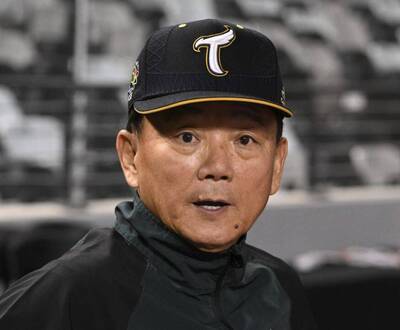《TAIPEI TIMES》 Taiwan to have increased access to US armaments: academics

From left, Institute for National Defense and Security Research visiting researcher Guermantes Lailari, Academia Sinica Institute of Sociology postdoctoral researcher Josh Wenger, former US Department of Defense senior director for China, Taiwan and Mongolia Tony Hu and former dean of the National Defense University’s Fu Hsing Kang College Yu Tsung-chi attend a forum hosted by the Formosa Republican Association in Taipei yesterday. Photo: Fang Pin-chao, Taipei Times
STRATEGY: The US uses ambiguity to simultaneously deter Beijing from using force against Taiwan and Taipei from declaring independence, a researcher said
By Wu Che-yu and Jonathan Chin / Staff reporter, with staff writer
Taiwan has obtained from the US a level of access to arms packages comparable to South Korea and Japan, retired major general Yu Tsung-chi (余宗基) said yesterday.
Yu, who served as the dean of the National Defense University’s Fu Hsing Kang College, made the comment at an event held by the Formosa Republican Association to mark the 45th anniversary of the Taiwan Relations Act’s (TRA) promulgation.
Washington’s removal of restrictions on official exchanges with Taiwan, coupled with Taiwan’s strides in strengthening ties with NATO members, has increased the nation’s access to US military equipment and technology, he said.
The TRA, which stipulates that the US has an obligation to supply the nation with defensive armaments, was created by the US to bolster peace and stability in the Western Pacific, said Tony Hu (胡振東), former US Department of Defense senior director for China, Taiwan and Mongolia.
Under the law, officials of both nations at various levels exchange visits to discuss national security matters and adjust defense plans according to projected Chinese military capabilities in five and 10 years, he said.
Based on these discussions, Taiwan would then submit proposals to acquire arms in quantities determined by available funds, Hu said.
The American Institute in Taiwan (AIT) has undergone significant changes since the signing of the TRA, from a Washington-based organization to one that functions primarily in Taipei, he said, adding that many of AIT’s current officials received their assignments directly from the US Department of State instead of going to Taiwan under a leave of absence as before.
The AIT was initially not allowed to raise the US flag, but now it flies the banner daily, Hu said.
The US’ strategic ambiguity aims to simultaneously deter the use of force by Beijing and declaration of independence by Taipei, Academia Sinica Institute of Sociology researcher Josh Wenger said, adding the TRA’s role is to facilitate the maintenance of this ambiguity and Taiwan’s self-defense capabilities
Although Russia’s invasion of Ukraine briefly raised doubts among Taiwanese that the US would send troops to defend the nation from Chinese aggression, US President Joe Biden’s subsequent comments have dispelled such skepticism, Wenger said.
Taiwanese should not hope that a change in China’s leadership would improve cross-strait relations, said Guermantes Lailari, a retired US Air Force Foreign Area officer and a visiting researcher at the Institute for National Defense and Security Research.
Chinese President Xi Jinping (習近平) is not the first Chinese Communist Party leader to claim that Taiwan is a Chinese territory, and no leader in Beijing can be trusted to take a more friendly approach to cross-strait relations, Lailari said.
If China invades Taiwan, the US could break off diplomatic ties with Beijing under the TRA, Lailari said.
A provision under Section 2 of the act could have a significant impact on US-China diplomatic relations, he said. It states that the US’ “decision to establish diplomatic relations with the People’s Republic of China rests upon the expectation that the future of Taiwan will be determined by peaceful means.”
In other words, if China wages war on Taiwan, the US and China are “done,” Lailari said.
“Most people don’t read that sentence. And most people ignore it, because they don’t like it, but it’s there,” he added.
The TRA has served as the legal framework guiding Washington’s unofficial relations with Taipei, including providing weapons for Taiwan’s self-defense, since then-US president Jimmy Carter signed it into law on April 10, 1979.
Additional reporting by CNA
新聞來源:TAIPEI TIMES














